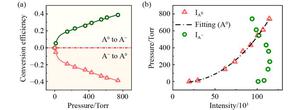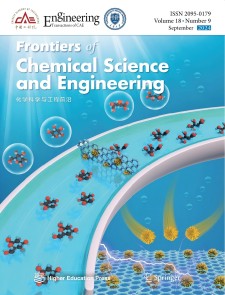Gas pressure-sensitive regulation of exciton state of monolayer tungsten disulfide
Abstract
Over the past few decades, significant progress has been made in thin-film optoelectronic devices based on transition metal dichalcogenides. However, the exciton states’ sensitivity to the environment presents challenges for device applications. This study reports the evolution of photoinduced exciton states in monolayer tungsten disulfide in a low-pressure environment to help elucidate the physical mechanism of the transition between neutral and charged excitons. At 222 mTorr, the transition rate between excitons comprises two components: 0.09 s−1 and 1.68 s−1. Based on this phenomenon, we developed a pressure-tuning method that allows for a tuning range of approximately 40% of exciton weight. Our study demonstrates that the intensity of neutral exciton emission from monolayer tungsten disulfide follows a power-law distribution in relation to pressure, indicating a highly sensitive pressure dependence. We provide a nondestructive and highly sensitive method for exciton conversion through in situ optical manipulation. This highlights the potential development of monolayer tungsten disulfide for pressure sensors and explains the impact of environmental factors on the product quality in photovoltaic devices. In addition, it demonstrates the promising future of monolayer transition metal dichalcogenides in applications such as photovoltaic devices and miniature biochemical sensors.


 求助内容:
求助内容: 应助结果提醒方式:
应助结果提醒方式:


